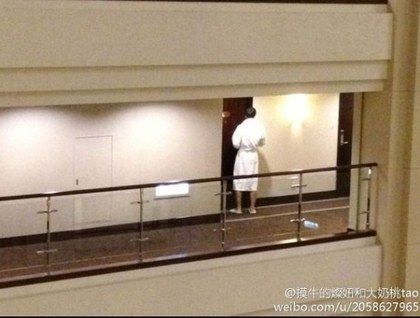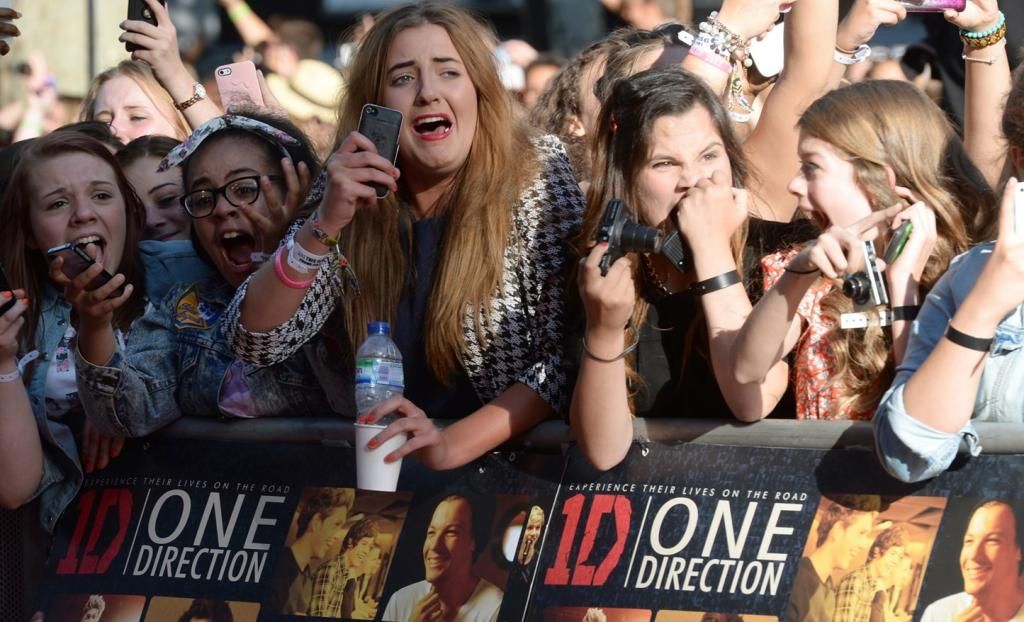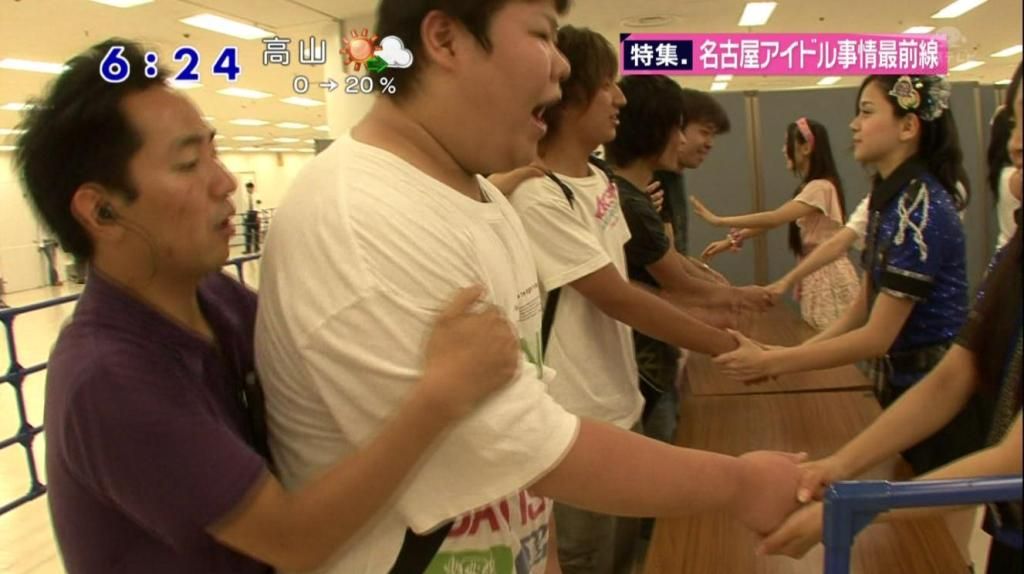 If you're part of the kpop fandom or are at least familiar with some of the elements or terminology, you might already know what a sasaeng "fan" is. If you're unfamiliar with the term then I'll tell you. Sasaeng "fans" are a group of people who love a Korean idol and spend their time by getting closer to them or gain attention through extreme tactics by any means necessary. These tactics include, but are not limited to, stalking their idols through a special taxi service, breaking into their home, dorm, or hotel room; invading their idol's family's privacy, stealing personal items such as underwear or pets, sending intimate or disturbing letters, and causing physical harm to their idol such as breaking their finger or violently pushing them. Because of these shameless tactics, this is the reason "fans" are in quotes. Most fans want attention from their favorite celebrity, but there are limits and most fans, at least the ones with common sense, know to respect their idols.
If you're part of the kpop fandom or are at least familiar with some of the elements or terminology, you might already know what a sasaeng "fan" is. If you're unfamiliar with the term then I'll tell you. Sasaeng "fans" are a group of people who love a Korean idol and spend their time by getting closer to them or gain attention through extreme tactics by any means necessary. These tactics include, but are not limited to, stalking their idols through a special taxi service, breaking into their home, dorm, or hotel room; invading their idol's family's privacy, stealing personal items such as underwear or pets, sending intimate or disturbing letters, and causing physical harm to their idol such as breaking their finger or violently pushing them. Because of these shameless tactics, this is the reason "fans" are in quotes. Most fans want attention from their favorite celebrity, but there are limits and most fans, at least the ones with common sense, know to respect their idols.People need to understand that celebrities are normal human beings like you and me. They deserve a right to privacy, space, and a sense of security as well as their families. So, causing a sense of fear for the idol you supposedly love is counterproductive and decreases the chances of them ever wanting to do anything, whether it's performing somewhere or just going out. Obviously, I strongly disagree with sasaeng behavior. No one likes it and there are plenty of rants online about how much people/fans loathe sasaengs. This post will not contribute to the complaints. No, I wanted to take a different angle on the situation and prod the inner workings on why sasaengs continue to exist and even possibly encouraged.
 Whether international fans want to admit it or not, but the audience for Korean fans range from middle school to high school; so pre-teens and teenagers. This shouldn't be surprising if you look back at the big boy band era of the 90s or even Justin Bieber and One Direction fans. The same demographic applies. With that said, these fans are going through puberty and hormones tend to hinder certain decisions. So, it's up to the parents or guardians to guide them on the correct path of what the proper behavior to control these hormonal changes. If these sasaengs are traveling to all of these places their idols are especially by taxi, then how are they getting money and when do they have time? Sasaengs are usually still students and can't hold a job because of their age. Therefore their parents or guardian are financially supporting their stalking habits or they are obtaining the funds through questionable and/or illegal means.
Whether international fans want to admit it or not, but the audience for Korean fans range from middle school to high school; so pre-teens and teenagers. This shouldn't be surprising if you look back at the big boy band era of the 90s or even Justin Bieber and One Direction fans. The same demographic applies. With that said, these fans are going through puberty and hormones tend to hinder certain decisions. So, it's up to the parents or guardians to guide them on the correct path of what the proper behavior to control these hormonal changes. If these sasaengs are traveling to all of these places their idols are especially by taxi, then how are they getting money and when do they have time? Sasaengs are usually still students and can't hold a job because of their age. Therefore their parents or guardian are financially supporting their stalking habits or they are obtaining the funds through questionable and/or illegal means.Aside from parental figures, there are also the companies to blame. This might sound degrading, but idols are simply products. Companies select from their trainees, pretty them up, slap a label on them (dancer, visual, variety, bad boy, introvert, maknae) and ship them off or market them to potential fans. They restrict their products from being damaged and used so they have a longer shelf life meaning controlling their style, onscreen presentation, filter their words, and limit personal relationships (dating bans). The purpose of this is to portray a deceptive perception of innocence and/or exclusivity to the consumers (i.e. the fans). Along with cutesy and romantic words through interviews and music, these things are directed to "you" and creates an intimate relationship with fans which could be taken to extremes. An old LinzerDinzer video explains this fairly well.
I'm fully aware that other countries use this tactic as well with boy (and girl) bands like Japan, but there were less restrictions placed upon them, at least in America. I was a big Backstreet Boy fan and they utilized the "I'm talking to you" method, but they were able to have personal relationships later in their career. As time went on, they became less contained and their personalities blossomed. They might've kept their labels, but it became less of their overall identity such as boy next door Brian, sweet innocent Nick, and bad boy AJ. MTV's mockumentary/reality show starring faux boy group 2gether explain these labels and the industry very well. Since this "you" tactic is used with such strict restrictions, this feeds into sasaengs' motivation to get closer to their idols. The problem and difference is that companies do absolutely nothing to stop sasaengs from not only putting their idols in danger but themselves.
 Some might believe that companies should upgrade their security and bodyguards, but they can only do so much thanks to South Korea's legal system. If they go too far, sasaengs could make up some sort of bogus case. The legal system will look over the fact that sasaengs initiated hostile activity and simply focus on the retaliation or protective maneuvers and how it "harmed" sasaengs. Sure, paparazzi can be just as bad when it comes to stalking and invading celebrities's personal life, but the difference between paparazzi and sasaengs is that they at least have a code of ethics and consequences if they invade their privacy or try to inflict harm to gain something. Why isn't there some sort of governmental punishment for sasaengs? It doesn't matter if they're minors either. They did something illegal and harmful, yet they get off scott free or even play the victim card. At least in America there are consequences set in place for minors in the legal system. If a minor pays someone to cause a car accident to get their idol's attention that is premeditated manslaughter (I believe that's the right terminology). Yes, this really happened! If sasaengs are loitering around a company's building, an idol's living space, or even an idol's family's home, that is illegal and could be considered trespassing. Heck, AKB48's company did something when a fan shared their bodily fluid during a handshake session or when two members and a staff member were injured by a fan with a hacksaw.
Some might believe that companies should upgrade their security and bodyguards, but they can only do so much thanks to South Korea's legal system. If they go too far, sasaengs could make up some sort of bogus case. The legal system will look over the fact that sasaengs initiated hostile activity and simply focus on the retaliation or protective maneuvers and how it "harmed" sasaengs. Sure, paparazzi can be just as bad when it comes to stalking and invading celebrities's personal life, but the difference between paparazzi and sasaengs is that they at least have a code of ethics and consequences if they invade their privacy or try to inflict harm to gain something. Why isn't there some sort of governmental punishment for sasaengs? It doesn't matter if they're minors either. They did something illegal and harmful, yet they get off scott free or even play the victim card. At least in America there are consequences set in place for minors in the legal system. If a minor pays someone to cause a car accident to get their idol's attention that is premeditated manslaughter (I believe that's the right terminology). Yes, this really happened! If sasaengs are loitering around a company's building, an idol's living space, or even an idol's family's home, that is illegal and could be considered trespassing. Heck, AKB48's company did something when a fan shared their bodily fluid during a handshake session or when two members and a staff member were injured by a fan with a hacksaw. Seriously, companies could contribute to cutting down stalking tendencies at least around the company building and, for rookies, dorm buildings. Authorities could also be a little more forceful too. If this continues to happen, and this is directed to the sasaengs, you could be responsible for the death of your precious idol because you tried to get their attention by harming them and their associates (i.e. family, friends, romantic partners). Idol life is already stressful, they don't need to worry about their "fans" crashing private family events and putting their lives in danger.

1 comment:
This is a very thought-provoking post! I do think a lot about how in the world a 13-year old can afford to fly to South Korea...
Another thing that bothers me about sasaeng behavior is the base mindset that seems to be pervasive in all of this; among the general public and possibly even authorities, too, and that is the dehumanization of idols.
You touched on how, since the music companies are for-profit, the idols/groups are "products," in a sense. I really, really think that most people feel some kind of entitlement, knowing that those companies wouldn't exist without their support and input.
And I think that root is what causes sasaengs to see nothing wrong with flying thousands of miles just to disrespect a person in a country that's not their homeland...it would be bad enough if they were doing it in their native country but there is something fundamentally disturbing about traveling that far just to disregard social norms and common sense.
Post a Comment